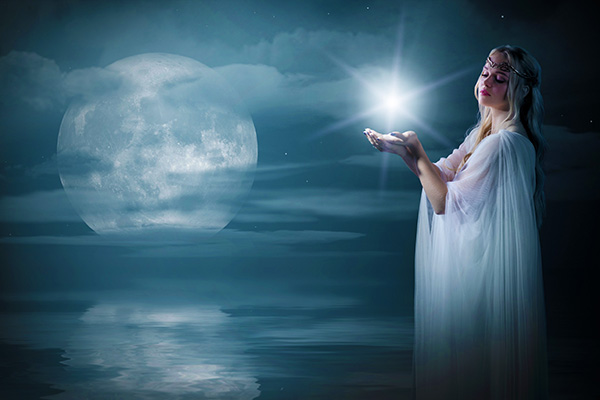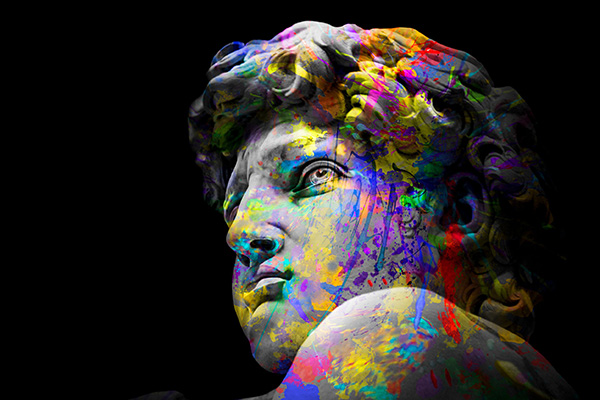culture
The Future Possibilities Of Business Telepathy
 In the dynamic world of business, where the exchange of ideas and the capture of customer attention are paramount, a form of communication that goes beyond conventional channels is an intriguing prospect. Consider, for example, the possibilities of telepathy as a groundbreaking business communication strategy.
In the dynamic world of business, where the exchange of ideas and the capture of customer attention are paramount, a form of communication that goes beyond conventional channels is an intriguing prospect. Consider, for example, the possibilities of telepathy as a groundbreaking business communication strategy.
While the concept of telepathic communication in the business environment may seem strange, esoteric, and far-fetched, I foresee a future where this transpersonal phenomenon will change the way businesses operate and communicate.
I envision a future where parapsychological principles and transcendental phenomena will increasingly merge with emerging technologies, and this heightened form of communication will be used to foster mutual understanding, teamwork, increased innovation and creativity, and a common purpose in the business environment.
Telepathy transcends the physical or material and extends into the realm of consciousness, intuition and psychic perception. It is the vicarious transmission of thoughts, ideas and information from one mind to another without the use of known human sensory channels or physical interaction.
How To Beat The Holiday Blues This Year!
 The holidays can be a very difficult and depressing time for some people. It can trigger unresolved emotions from childhood, unhealed trauma from past relationships, or unfinished grief from lost loved ones.
The holidays can be a very difficult and depressing time for some people. It can trigger unresolved emotions from childhood, unhealed trauma from past relationships, or unfinished grief from lost loved ones.
It can also make you feel more lonely, disconnected, and isolated than usual.
Especially for people struggling with existing mental health conditions such as anxiety or depression, their symptoms may worsen during the holidays due to increased stress, social demands, and cultural triggers.
But there are ways to beat the holiday blues and overcome sadness, depression, or low spirits during “the season to be jolly.” There are ways you can take back your power and improve your mood and overall well-being.
First, it is necessary to determine what is causing you to not feel the holiday cheer that everyone else seems to be experiencing.
Several factors can contribute to negative, gloomy thoughts and feelings during this time of year. A common trigger for many of us is that mainstream holiday traditions tend to emphasize spending time with loved ones and family, which can exacerbate feelings of loneliness for those who are socially isolated or have lost loved ones. This isolation can be particularly acute for those of us who live far from family or have strained relationships with them.
Navigating Loneliness During the Holidays
 The holiday season is traditionally portrayed as a time of togetherness, love, joy, and belonging. We are inundated with media images of families gathered around a festive table, friends celebrating, and communities coming together.
The holiday season is traditionally portrayed as a time of togetherness, love, joy, and belonging. We are inundated with media images of families gathered around a festive table, friends celebrating, and communities coming together.
Paradoxically, for many people, this time of year is instead filled with feelings of loneliness, isolation and disconnection.
The root cause is the societal stereotype and cultural assumption that everyone should be joyful, happy, and surrounded by loved ones during the holidays. If you’re not, for whatever reason, it can lead to feelings of inadequacy, isolation, and social failure.
Holiday loneliness is exacerbated by the stark contrast between our actual circumstances and the commercially driven, idealized versions of holiday gatherings and celebrations we see in advertisements, television shows, movies, and social media. This increases feelings of disconnection, low self-esteem, and even depression.
Loneliness during the holidays can have a significant impact on mental health. Feelings of isolation and disconnection during this time of year can exacerbate existing mental health issues and lead to the development of new ones. The constant reminders of togetherness and joy, combined with a lack of social connections and meaningful interactions, can increase feelings of loneliness, leading to emotional distress, feelings of emptiness and hopelessness, and a decline in overall well-being.
The Powerful Practice Of Color-Based Affirmation
 Affirmations are known to be a powerful spiritual practice for manifestation, self-healing, and personal empowerment.
Affirmations are known to be a powerful spiritual practice for manifestation, self-healing, and personal empowerment.
What is less well known is that associating your affirmations or intentions with specific colors can greatly enhance your practice by infusing it with the powerful symbolism, purposeful energy frequencies, and mind-altering psychoactive effects of different colors. It aligns our energy vibration more powerfully with the desired effect or outcome.
The practice of color-based affirmation, also known as ‘color therapy affirmations’ or ‘rainbow affirmations,’ draws inspiration from a variety of traditions and disciplines, including spirituality, metaphysics, chromotherapy, and color psychology.
Color has a rich history of symbolic significance that spans all cultures and many centuries.
Ancient civilizations recognized both the metaphysical and therapeutic power of color, while many religions and spiritual wisdom traditions have an intricate tapestry of color symbolism in their teachings and practices. The ancient Egyptians, for example, recognized the healing power of color. They had a sophisticated understanding of color that they used in their temples and rituals.
Full Moon Release Ritual
 Tomorrow’s Gemini Full Moon will be the last full moon before the winter solstice. Traditionally also known as the Beaver Moon, Frost Moon, or Mourning Moon, this full moon is a perfect time for introspection, spiritual contemplation and inner transformation.
Tomorrow’s Gemini Full Moon will be the last full moon before the winter solstice. Traditionally also known as the Beaver Moon, Frost Moon, or Mourning Moon, this full moon is a perfect time for introspection, spiritual contemplation and inner transformation.
The November Full Moon invites us to gather our resources, release what no longer serves us, and embrace the transformative power of the changing seasons.
As we prepare for winter within and without, we can cultivate the resilience and wisdom necessary to meet the challenges and opportunities that lie ahead. The ideal way to do this is through a full moon ritual.
Full moon release rituals have been practiced for centuries in various cultures and spiritual traditions. The goal of these rituals is to create space for growth, transformation, and new beginnings. The phases of the moon are traditionally associated with cycles of growth, decline, and renewal, making the full moon a particularly powerful time to release negative energies, unwanted patterns, and emotions that no longer serve us.
The ancient Egyptians worshipped the moon goddess Isis, who symbolized fertility, magic, and transformation. They believed that the full moon had the power to cleanse and purify.
Embracing Art As A Spiritual Resource
 Art, in its many forms, continues to be a wonderful source of inspiration for my personal and spiritual growth journey. Art has the power to evoke emotion and connect us to feelings and something beyond the immediate boundaries of our lives.
Art, in its many forms, continues to be a wonderful source of inspiration for my personal and spiritual growth journey. Art has the power to evoke emotion and connect us to feelings and something beyond the immediate boundaries of our lives.
Whether it is a source of divine inspiration or an expression of spiritual wisdom, art has the potential to infuse our lives with beauty and eternal wisdom. Art is a profound spiritual resource.
The deep connection between Renaissance art and spirituality has not only shaped my own artistic and spiritual journey, but has resonated deeply with countless others throughout history.
The Renaissance, which spanned the 14th through the 17th centuries, was a time marked by a thirst for knowledge and exploration. Artists, scholars, and scientists sought to understand and communicate the mysteries of the world and our place in it. As a result, art emerged as a powerful vehicle for expressing and exploring spiritual themes.
Renaissance artists, often working under the patronage of religious institutions, were masters and storytellers of symbolism. Their works, rich with hidden meanings, served as visual representations of faith and devotion. Their artistic masterpieces, including paintings, tapestries, and sculptures, became integral to devotional practices during this period.
